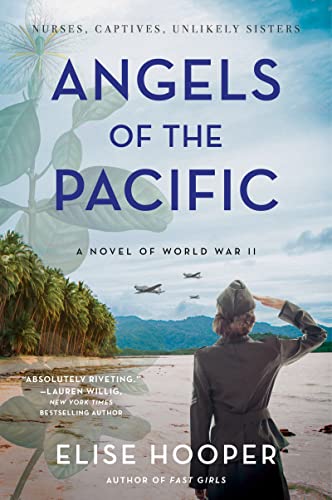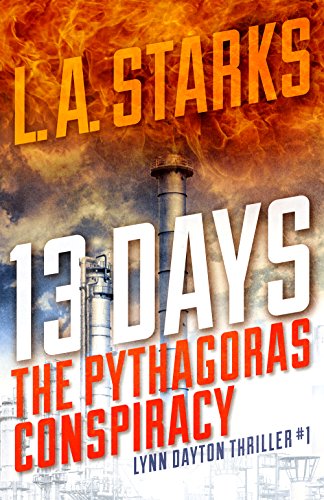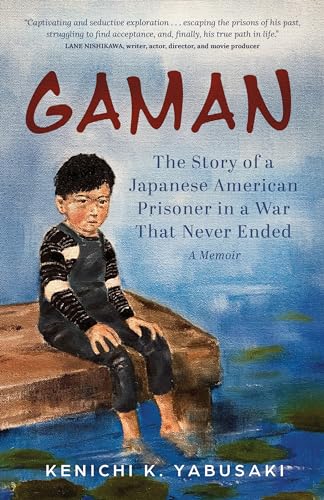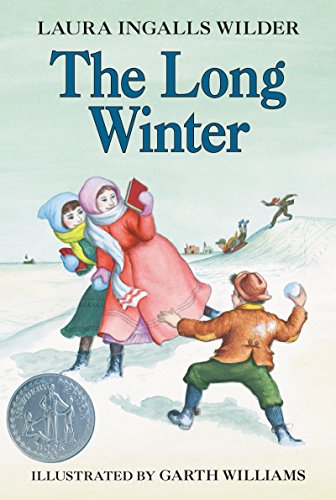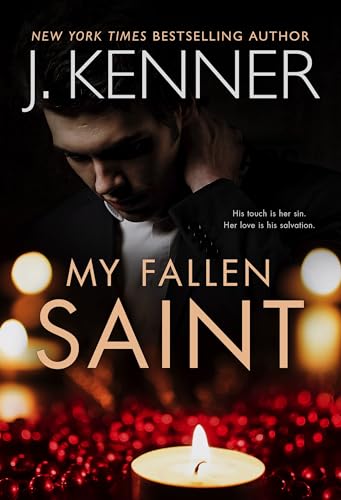On Friday we announced that Derick Parsons’ The Journal is our Thriller of the Week and the sponsor of thousands of great bargains in the thriller, mystery, and suspense categories: over 200 free titles, over 600 quality 99-centers, and thousands more that you can read for free through the Kindle Lending Library if you have Amazon Prime!
Now we’re back to offer our weekly free Thriller excerpt:
The Journal (Jack O’Neill)
by Derick Parsons
And here, for your reading pleasure, is our free excerpt:
Prologue
Martine Lowell closed the front door of her small, yellow-bricked Council house and set off up the road, her head bent against the biting November wind and the cold, stinging rain it was flinging into her face. As she walked she huddled as deeply as she could into her coat, wishing she could afford a new, heavier one for the winter ahead but knowing it wasn’t going to happen. Money was tight, as ever, and warm coats for the kids had taken priority over her needs; again as ever. But in spite of the weather she was only too glad to escape from the shouting and squabbling that seemed an essential prerequisite for her children’s getting dressed for school, in the midst of which her pleas for calm were not so much ignored as unnoticed. Her kids –all boys- were eight, ten and eleven, and although she loved them absolutely Martine’s love was not blind and she was quite aware that the rest of the world saw them as undisciplined little hellions. On her worst days Martine was inclined to agree but even at the best of times she was only too happy to abandon them to their own devices and go to work.
Martine left the Ashpark estate she lived on in Ballybrack, South Dublin and walked quickly up the road towards Watson’s, the estate where her friend Sally Carter lived. A private estate that was only a few hundred yards away geographically but which was nonetheless in Killiney, a different area postally and a different world metaphorically. It lay on the far side of an invisible border that Martine would never cross but which her friend had with apparent ease; the dividing line between the working- and middle-classes. Every day as she walked past Tesco’s and crossed this imaginary yet so real divide she tried not to feel jealous, but rather to blame her growing bitterness on the depressing sameness of her daily life. Every day followed the same routine; feed the kids and at least point them towards the right clothes and schoolbags, then scurry out the door to pick Sally up before walking on up to the supermarket where they both worked. Every day try to earn enough to provide the kids not just what they needed but what they increasingly demanded. And try to ignore the little voice in her head that told her the reason her kids were so wild was that she was a single mum, and the reason she was single was that her kids were so wild.
Martine was tall and slim, and always made an effort with her appearance, from her long, now-dyed blonde hair to her knee-high black boots, but in spite of this she looked nearer forty than her actual thirty. The kids again, no doubt. In her youth she had had no trouble attracting men but had lacked discrimination which, allied with an inability to count, had led to her having three kids with three different men. Martine did not consider herself easy, or cheap, but she did consider herself damned unlucky, in that every man she had ever fallen for had turned out to be shifty and unreliable, and utterly committed to the single life. Nowadays, of course, she attracted far fewer men, shifty or otherwise, and the few who were interested tended to run a mile when they met her kids; especially Jason, her oldest, who had appointed himself her bodyguard and who made no attempt to hide his suspicion and bitter resentment of any man who as much as tried to take her to the pictures.
She turned off the main road up into Watson Vale, trying not to contrast her life with that of Sally Carter. Sally was twenty-six and, being childless, looked it. No crows-feet at the corners of the eyes or touching-up of the roots for her. To Martine she seemed one of the golden ones, one of those irritating people who breeze through life without effort, without worrying, and without encountering any sort of trouble. Oh, there had been that unpleasantness with that weirdo, months before, but apart from that nothing seemed to disturb her pleasant jaunt through life. Martine’s somewhat thin lips tightened as she focused on the main cause of her…not bitterness precisely but rather ruefulness. Jimmy Maguire was something of a catch, and when Martine had been introduced to him by an arch and clearly preening Sally she had felt a sinking in her stomach that had dismayed her in its pettiness; he was tall, thirtyish, and quite good-looking. He was also pretty successful, being a branch manager for the Western Bank in spite of his youth, but although that had also caused her a pang, what had really burnt her heart was that he was clearly head-over-heels in love with Sally, and had proposed three months to the day after first meeting her.
That was what had rankled most with Martine; no one had ever fallen that hard for her, not in three months nor in three years. Certainly no man had ever wanted to marry her, though she would have been happy with less of a catch than Jimmy Maguire. To do her justice her jealousy hadn’t lasted long; she and Sally went back years and she wished nothing but good for her friend. It was just that it would be nice for a little good to come her way too, now and again.
When she came to number 44 Martine turned in and walked quickly up the drive to her biggest bugbear, the most obvious proof of her friend having landed on her feet; Jimmy owned a nice house on a nice street, and had begged Sally to move in. Begged. No Council rubbish for her. They were to be married soon and then Martine’s bitter cup would be full; certainly Sally would never know the humiliation of picking up strangers in pubs and have them stay over simply for company. Would never have to exchange meaningless sex for the comfort of a warm body in the bed beside you because the loneliness had become too much to bear. With the humiliating part, of course, being that they never came back for a second date. To Martine each new break-up and failed relationship was like climbing out of a swimming-pool; all the life and joy and buoyancy drained away as reality took an iron grip and dragged you back down to the ground. Yet another of life’s little sourballs that Sally had never known, and never would.
Martine ignored the bell and instead jerked the door knocker up and down with unnecessary force, and a couple of times too many, reminding herself grimly that Sally was her friend. She liked her, and most of the time was pleased at her good fortune and evident happiness. But only a saint could be thrilled for her all the time. She stood shivering for a long minute until a gust of wind sent a needle-like spray of icy rain into her face. Then she turned and plied the knocker again with savage force, putting some of her loneliness and pent-up, formless longing into every crash; where the hell was she? They’d be late at this rate.
She pushed open the letterbox and shouted in, ‘Come on, Sally, get a bloody move on!’ Then, with a flash of her more usual good humor, ‘Put him down, you don’t know where he’s been!’ And you’ll be on honeymoon soon enough. Lucky cow.
There were still no signs of life and Martine stood irresolute for a moment; should she leave her and just go? Was it possible that Sally had left without her? That would be great, if she were to make herself late standing here knocking on the door like a fool, only to arrive and find little Miss Perfect already clocked in. She bent and pushed open the letterbox again but this time she put her eye to it instead of her lips, trying to see through the gloom within. At first she could make out nothing but then the hallway gradually became clear, and then the open kitchen door at the far end of it. Through the doorway she could see a chair, with a figure sitting on it; the figure of a man. Jimmy, no doubt, but why was he sitting at such an awkward angle, with his head tilted so far back?
A cold hand that had nothing to do with the weather gripped her and she bit her lower lip, hard. There was something badly wrong here, though she could not make out what. And then she realized that Jimmy’s hands were clasped together and jutting out behind his chair. Even as she realized that they were tied together she also realized that he was dead, must be dead to be propped so, must be dead to be sitting with his head so far back at that unnatural angle. She realized it with a terrible certainty that made her utter a scream of utter shock and recoil away from the door on suddenly wobbling legs that almost caused her to fall. She tried to tell herself it was just imagination, that it wasn’t a man’s body at all but a deeper, truer voice screamed in her head, Dead! He was DEAD! Who could have done such a thing? To decent, harmless, nice Jimmy? A worse thought struck her and she uttered a second scream through the knuckles she was suddenly biting; Sally! Where is she? Where is she? Oh, God, I can’t see her! Please God don’t let her be dead too!
She looked around helplessly, wildly, almost gagging in fear and horror, and fumbled in her coat pockets for her mobile phone. It wasn’t there so she rummaged through her handbag in a panic, scattering her stuff all over the frosty drive in her panic. Still nothing. She shut her eyes and bit her lip again, this time hard enough to draw blood; Jason! The little bugger! He’s always taking it! I’ll give him Angry bleeding Birds when I get home!
She pulled herself together and ran down the drive and up to the next house on the street, banging on the door and jabbing wildly at the bell with a finger that would not hit its target twice in a row. After what seemed an age an elderly woman opened the door fearfully and peered through the crack below the brass security chain.
‘Can I help…’ she began in a quavering tone that Martine drowned out by shouting, through streaming tears, ‘Ring the police! Quick! And an ambulance! Jimmy, the man next door, I…I think he’s dead!’
The old lady goggled at her but showed no signs of moving and Martine screamed at the top of her voice, ‘Ring a fucking ambulance! Don’t you understand? An ambulance!’
The old lady vanished with a bang of the door and Martine shut her eyes and sagged against the side of the house, hoping that the silly old bitch would ring someone in authority, even if it was only to have her arrested. And as she stood there, immune to the bitter wind and rain, she repeated over and over to herself, like a mantra, Please let Sally be okay. Please let Sally be okay. Please let…
Chapter One
Detective Inspector Jack O’Neill climbed stiffly out of the little blue Ford Ka and stretched hugely and with a grunt of relief. It had been a long drive up from Cork and neither man had felt like stopping along the way, and now his back and knees were protesting at the long, close confinement.
Anno Domini, he thought to himself, pressing the knuckles of both fists into the small of his back, the one enemy no one can defeat. But he thought this without any great bitterness; he still considered himself to be just about middle-aged, and of late he had been working hard enough on his fitness levels to feel at least ten years younger than his actual age of fifty-seven. Well, on a good day anyway; his perceived age fluctuated with his mood, and during this long, difficult week he had occasionally felt very old indeed. And especially last night.
In company with his assistant, Detective Garda Frank Carr, a tall fair, good-looking young man, he made his way across the staff car park to the glass-walled security booth that surrounded the lifts to the offices above. Frank might still be a nonentity in these parts but Jack was about as well known here in the old Garda headquarters in Harcourt Square as any man could be, and the uniformed policeman behind the desk nodded to him in greeting and pressed the electronic door release to let them in. They made their way to the elevators, where Frank had to use his security pass to call a lift down, Jack having forgotten his pass yet again.
Once in the lift Jack hesitated before selecting a button; it would be nice to have a coffee and five minutes in his office before seeing the Assistant Commissioner, but Julie’s desk was strategically placed right outside said office, and things had been strained between them of late. With a sigh he abandoned the idea of coffee –which being from a dispensing machine was generally rank away- and hit the button for the top floor.
Frank noted the hesitation, and the final decision, and smothered a grin; he knew all about the problems in Jack’s personal life -and the reason for them- but in spite of their peculiarly informal relationship he thought it best to keep his mouth shut. He also thought that Jack would eventually lose his battle with the redoubtable Julie, but he had enough sense to keep that to himself too.
They made their way in silence to the office of the Assistant Commissioner for Crime, (Dublin Regional Division), where Jack rapped on the door and entered without waiting for an invitation. This had been his wont with the previous Assistant Commissioner, the late, unlamented Eamonn Rollins, and the habit had persisted. The new incumbent, one Edward O’Neill, no relation to Jack, glared up from behind his immense desk at the intrusion, but when he recognized the interloper his expression relaxed and he closed the file he had been studying. He said, with fair grace, ‘Come on in, Jack. Have a seat. You, too, Carr,’ He gave a half-smile and added, with just a trace of irony, ‘Don’t stand on ceremony.’
Jack heard only the words, not the tone, and dropped into one of the visitor’s chairs with a grunt. As he sank deep into the soft leather he thought, as he did every time he was up here, that he would somehow have to beg, borrow or steal one of these chairs to replace the battered wreck foisted on him years before. He stretched out his long legs and regarded his namesake with a benign sense almost of ownership; when one meets another person with the same surname one generally either resents the liberty or else feels a kinship, an imagined connection, and Jack was no exception. Besides, Edward O’Neill was well known to him from the old days when they had both been in the Murder Squad, though he was not quite a friend; more a friendly acquaintance. He was a small, neat, precise man with spectacles and a bald, dome-like head. He was also a strict disciplinarian with a reputation for complete honesty and rectitude -not always a given in the Gardaí- which was no doubt why he had been selected to replace Rollins. Even the suit he was wearing was reassuringly cheap and far from new, though it was clean and freshly pressed.
The Assistant Commissioner returned Jack’s stare thoughtfully, reflecting on the ravages of time even as Jack had earlier, though not perhaps as poetically. They had worked together on one or two task forces, many years before, and he still remembered Jack as big and strong and athletic, an intimidating opponent to the ungodly but a comforting ally to his comrades. Particularly in a tough spot. The man facing him now was still big and if anything could be even more intimidating, but he was thin and his face was gaunt and craggy and deeply scored with lines. His hair too was now more gray than black but at least his faded blue eyes were clear and sober. Edward knew he had kicked the booze the year before and was glad he seemed to be staying off it; he had seen more than one good man destroyed by alcohol over the years. It was just one of the occupational hazards facing detectives. He would have liked to have asked about it but it wouldn’t have done; not in front of young Carr. Discipline must be maintained. Instead he cleared his throat and leaned back in his leather swivel chair before saying, ‘So, what’s the situation, Jack?’
‘It’s a shambles,’ said Jack bluntly, twisting his mouth as if the words were distasteful to him. He was in an unusual position in the Garda, being supernumerary to establishment and attached to no particular division. He had been seconded to the Central Records department for years, to keep him out of sight –and trouble- when he was an habitual drunk, but having cleared a series of murders the year before he had more or less rehabilitated himself. He also possessed quite a bit of dirt on the Garda itself, and to keep him quiet had been offered a promotion to Superintendent; he had refused, and had instead asked to keep on investigating murders as the price of his silence. His rationale was that he cared nothing for rank –or the extra pay- and as an Inspector could still be a cop, while as a Superintendent he would be just another paper-pushing bureaucrat.
He would never have revealed the true story behind the killings anyway, but the powers-that-be had not known this and had been glad to shut him up at so cheap a price. Since then he and Frank Carr had been used as a floating, two-man unit handling the cases that no one else wanted, or hadn’t the manpower to deal with. And although opposites in almost everything they had prospered together, clearing eight murder cases in a row. The latest, however, had defeated them; a suspicious death in a remote village in Cork that the local CID had asked Dublin for help with, supposedly due to overwork and lack of local resources. As under normal circumstances no one in Cork would ask Dublin for a drink of water if they were dying in the Sahara O’Neill had dark suspicions of his own; he thought the locals knew well it was a dog and were happy to shove it onto the smartarses up in the capital. Even apart from the usual Irish schadenfreude –and the eternal, bitter Cork-Dublin rivalry- this would also take an unsolved murder off their books.
‘Basically,’ continued Jack in a disgruntled tone, ‘this guy claims he went out for a walk with his wife last Saturday night along the cliffs near their farm. He says she slipped and fell over the edge onto the rocks a hundred feet below.’
‘But?’ said Edward knowingly.
‘But everyone in the village knows that they hated each other,’ replied Jack morosely, ‘So much so that they didn’t even speak to one another, much less go for moonlight walks together. Which is why one of the neighbors rang Cork CID and said the husband had snuffed her. When we looked into it we discovered that both of them were having affairs and loathed each other, but wouldn’t split up because she wouldn’t go without half of everything he possessed, and he wouldn’t give her half the farm –which had been his father’s- and couldn’t afford to pay her off.’ He looked at the Assistant Commissioner from beneath his heavy brows. ‘We also found that he took out an insurance policy on her fourteen months ago for five million euros.’
Edward O’Neill whistled. ‘So you think he lured her up to the cliff top on some pretext and then pushed her over?’
Jack shrugged. ‘No, I know he lured her up there, and either pushed her off or hit her over the head with a rock and then pushed her over.’
‘The problem,’ interjected Frank, ‘is that we couldn’t find the slightest shred of proof. No witnesses, no physical evidence…nothing.’
He didn’t need to add what the other two men knew already; when it comes to murder, simple is always best, and sometimes unsolvable.
‘We brought him into Garda headquarters in Cork,’ added Jack gloomily, ‘and sweated him for twenty-four straight hours. And we got nothing; not a chirp or a squeak. I tried everything I know, every ploy I could think of, and he just sat there and stonewalled. We had to release him in the end because he stuck to his story like glue.’
‘A story he never varied one iota,’ added Frank significantly, ‘The cracked record, that broken bell/ forms an inward spiral, a road to hell.’
Edward gave him a thoughtful and somewhat irritated look; in his book junior detectives, like children, should be seen and not heard. And not seen all that often either. Plus, although he had heard of the young man’s penchant for dodgy poetry, he thought that Jack had pretty much stamped the habit out of him. But he took the point in spite of his annoyance; genuine witnesses change their story very slightly with every telling, as they forget or recall minor details and use different phraseology, so anyone who sticks to the letter of their statement is absolutely lying, parroting a carefully rehearsed story. He considered what they had told him for a minute before dismissing it with a brusque, ‘Well, if there’s no evidence we’ll just have to forget it for now. A witness may yet come forward. Or if he was religious his conscience might yet lead him to confess. You never know; remorse is a powerful tool. I’ve had people get drunk and confess before now.’
His two subordinates looked at him with almost identical expressions of incredulity and he moved on by saying, ‘Anyway, since you’re stuck I’ve got something else for you. If you want it.’
Again Jack and Frank mirrored each other’s expressions by pricking up their ears and looking at him with renewed interest, and Jack said, ‘I know we’re both due a few days off but this last case has left a sour taste in my mouth; I think both of us would like to wash it away with a win.’
Frank nodded his agreement and the Assistant Commissioner raised a sheet of paper from his desk and said, ‘Fresh in this morning. What looks like a double murder in Killiney. Unusual in a nice area like that.’ He looked at O’Neill, ‘It’s only a mile or so from your house, Jack. Be a handy one for you.’ He glanced back at the sheet, ‘Looks like a young couple murdered by an intruder. Or possibly a Tiger kidnapping gone wrong, since the male victim was a bank manager. We seem to have one of those once a month, these days. By the way, Murder sent a junior out with the SOCO’s to have a preliminary look around but they said they’re up to their eyes and asked if you were around to take it for them.’
Jack and Frank exchanged a look of perfect mutual comprehension; if the Murder Squad didn’t want the case it meant they thought it was a dog; either hard to solve or at the very least time consuming. It might take weeks to track down an intruder in a burglary that went wrong, or a random maniac, and with the end of the year approaching -and budget appropriations time- no one wanted an extra unsolved statistic sitting on their books like a turd on a picnic blanket. Hence their recent trip to Cork. Most murders are committed by a spouse or lover, and these are the cases the Murder Squad covet; they tend to be quickly and easily solved, and give the Squad a clearance rate they can publicly boast about.
Jack shrugged cynically and held out his hand for the Incident Report sheet; what the hell, it made the public feel safer and in these days of government spending cuts he wasn’t averse to making An Garda Siochana look a little more cost effective than they perhaps really were. Even so he said, in a heavily ironic tone, ‘Always happy to help boost Murder’s clearance rate,’ as he took the Incident Report and stood up to leave the room. He nodded genially and let Frank tender a more respectful goodbye to their boss as he walked from the room with his head down, his eyes devouring the scant details on the sheet.
‘Straight back down to the car park, Frank,’ he said with a sigh as they entered the lift.
‘We had an early start,’ hedged Frank hopefully, his finger hovering over the buttons, ‘And it is lunchtime. It wouldn’t take ten minutes to nip up to the canteen and have a quick bite. Sir.’
‘Forget it,’ said Jack dryly, ‘We can get a takeaway coffee and a sandwich on the way. This one is fresh and we need to take it on the bounce.’ And there’s a good chance Julie will be having lunch in the staff canteen, he thought but did not add. Nor did he need to; Frank had made the leap the instant he had spoken, and had regretfully pressed the button taking them back to the car park even before Jack had shot him down.
Chapter Two
By the time the detectives reached the victim’s address the Technical Team had finished their preliminary examination of the scene, and the first wave of crime scene investigators had moved on to the next murder scene on their never-ending list. They had, however, left a couple of technicians to go through the house with a fine-tooth comb, as per protocol, to search for foreign hairs and fibers and the like.
When Jack and Frank had signed the admittance log and donned blue plastic booties over their shoes –wondering all the while why there was no media present, not even a reporter from one of the local free newspapers- they made their way into the kitchen. Here they found not one body but two; Martine Lowell’s fears had been realized and Sally Carter was indeed dead, sitting at the kitchen table next to her husband-to-be and in an identical pose; hands tied behind the back of the chair and the head tilted back to allow the throat to be cut almost back to the spinal column.
The two detectives observed the death tableau in grim, contemplative silence. Both were sensitive men, in their own different ways, and although long use had given each a protective coating over their emotions it had not made them totally indifferent to the horror that lay within that blood-drenched kitchen. Both victims had bled profusely, and the clothes of each were covered in a thick coating of dark, dried blood. The table in front of the bodies was splattered with blood that had sprayed across it and dark pools had formed beneath each chair. Not only that but they were blurred partial footprints on the kitchen floor, each carefully circled in chalk, that must belong to the killers.
Trying to ignore the particular reek that only arises from large quantities of blood, Jack wondered if the fact that they were fully clothed was significant; they certainly hadn’t been murdered that morning, if the black, crusted blood was any guide. And they would hardly have been dressed had they been woken in the night by an intruder. The only way the burglary-gone-wrong scenario could work was if they had come home and discovered the robber at work the night before.
Dr. Henry Ryan, one of the Assistant State Pathologists and an old sparring partner of Jack’s, was the examining medical officer and was hunched over Sally’s corpse when the detectives entered the room. He straightened up on seeing Jack in the doorway and said, with a loud sniff, ‘You took your time. The SOCO has already been and gone, though he left some of his team to do the sweep and vac.’
‘O’Halloran?’ asked Jack hopefully, naming his favorite Scene-of-Crime-Officer and, in his view, the best.
Ryan shook his head, smiling a little and always happy to be the bearer of bad news. ‘O’Hare. He’s good too, though,’ he added with far less relish.
Jack nodded noncommittally, ‘I’ve worked with him before.’ It wasn’t bad news but it wasn’t the best possible start to the case either; O’Hare was pretty good but O’Halloran was better. ‘Got a possible time of death for us, doc?’
Ryan pursed his thin lips, ‘Sixteen to eighteen hours ago, by the liver temperatures. I’ll be more exact later but I’m pretty confident in my preliminary figures; no central heating to screw up the rate of cooling, you see, even though it was cold out. I’ll cross-check it with the lividity once I get them back to the lab.’
The detectives stood in silent calculation for a moment before Frank said, slightly diffidently, ‘Between six and ten last night then.’
They moved further into the kitchen, avoiding the blood on the floor, and took a closer look at the bodies. At length Frank said, ‘From the blood spray on the table they were both murdered from behind?’
Jack nodded and Ryan interposed sharply, ‘I’ve looked at the wounds with a magnifying glass and I’m pretty sure both were killed by one sweeping cut, from right to left, consistent with a right-handed assailant. Obviously it won’t be officially confirmed until the autopsy but just between ourselves I don’t have much doubt. They were killed in situ, obviously. No sign of a murder weapon.’
‘The killer will have blood on him though, won’t he?’ said Frank hopefully, ‘I mean, from the amount that’s been splashed around you’d think he’d be covered in it. And his shoes certainly are, if these footprints are anything to go by. That has to help when we find a suspect.’
‘Maybe,’ said Jack heavily, but without any great optimism; like the junior from the Murder Squad before him he already had a bad feeling about this one, and the distinct impression that it would not be solved quickly or easily. ‘Are the footprints from just the one pair of shoes?’
‘O’Hare didn’t say,’ said Ryan sourly. And I’ve enough on without doing your job for you.
‘Take photos of them all, Frank. We’ll do our own comparisons while we’re waiting for the CSI report.’ Frank pulled out his phone to comply and Jack steeled himself to bend over the victims and peer closely at the gaping, naked wounds before saying thickly, ‘What sort of knife did this, Doc?’
Ryan shrugged, ‘Wait for the autopsy.’ He hesitated before adding, ‘Something big, I think, but thin, and very sharp.’
‘Not a hunting knife then? Or a combat weapon?’
Ryan shook his head, ‘I can’t be certain yet but if you want a guess I’d say a carving knife. I’ll know more after the post mortem.’
Frank was busily rummaging through the kitchen drawers and cupboards and now said, ‘There’s a set of carving knives here, but it seems complete. Not very sharp, and not particularly good quality either.’
‘Bag them and tag them for examination anyway,’ instructed Jack, ‘They might be playing clever buggers, and washed the murder weapon and put it back with the rest of the set.’ He said it without any conviction, however, and Frank, though he obeyed, shook his head and said, ‘I think they brought the murder weapon with them, and came to kill, not rob.’
Jack had already reached the same conclusion but even so he said, ‘Or just threaten to kill, if it was an attempted Tiger robbery.’
Frank pursed his lips doubtfully and shook his head, ‘Would bank robbers bring a knife rather than guns?’
‘The scare factor?’ suggested Jack, ‘A knife at your wife’s throat might be a more graphic threat than a gun. Might keep you in line once you’re out of the robber’s sight, opening the bank or whatever.’ He checked the sheet the Assistant Commissioner had given them. ‘Sorry, fiancée, not wife, according to the woman who called it in.’
‘Perhaps, but it looks like they were killed last night. Surely if it was a Tiger robbery they would have come here first thing in the morning? At like, 5am or something? First of all to be sure of finding them in, and secondly so the raiders wouldn’t be here all night? After all, the longer they were here the better the chances of something going wrong, or of someone calling round.’
‘You could be right,’ conceded Jack unwillingly, though similar thoughts had already crossed his mind. Frank was coming on as a detective, and at his current rate of progress would soon be ready to move on and start running his own cases. And Jack hated change almost as much as he hated criminals. He would never dream of holding the younger man back, but by God he’d miss him when he was gone. ‘After all, if one of their mums was ringing all evening and no one answered, or answered their mobiles, they might have rung the police.’
‘Or called round and banged on the door ‘til they got in?’ offered Frank, ‘Both sets of parents live within walking distance, sir.’
Jack nodded, ‘And both sets of parents probably have emergency sets of keys and could let themselves in if they were worried.’ He paused, ‘Though, as it happens, no one did call round. And it could still have been a burglary that went wrong. Come on, let’s check the perimeter for signs of a break-in. You take upstairs and I’ll take down.’
There were no signs of forced entry anywhere, as the Technical officers had already noted in their report -though it would be days before Harcourt Square got a copy of it- and the two detectives returned to the kitchen in pensive mood. ‘They let the killer in themselves,’ said Frank glumly, ‘Architect of your own despair/ evil invited in, looking fair.’
Jack had had a year or so to get used to this sort of thing and he just nodded, hardly even hearing it anymore. Then he said, ‘I don’t like the looks of this one, Frank; I think it’s going to be a pig. I also think you’re right about it being a deliberate murder rather than a Tiger robbery that went wrong.’
Natural optimism and belief in the essential triumph of good over evil stopped Frank from agreeing, but he knew better than to argue either. A diplomatic silence seemed the most sensible course and he just nodded in turn, though in fact he had boundless confidence in Jack’s ability to solve almost any case, pig or not. The older man was no one’s idea of a deductive genius but he was dogged and stubborn and dedicated, and if the killer had made the slightest mistake he would have him.
After a moment’s thought Jack continued, ‘I mean, this Maguire guy wouldn’t have refused to cooperate with a Tiger kidnapping, would he? Not with a knife at his girlfriend’s throat.’
‘Bank staff are instructed to cooperate in these cases,’ agreed Frank.
Jack nodded, ‘Exactly, so why kill them? No, it can’t have been a Tiger robbery. And it can’t have been a disturbed burglary because once they were tied up they were no threat, the burglars could have escaped. There was no need to kill them. And that only leaves deliberate murder.’ He carefully bent down beside Sally’s corpse to check what she was tied with and said, ‘Standard blue clothesline, new-looking.’
Frank had already leapt towards the sink and was rummaging busily in the cupboard under it when Ryan said sourly, ‘Save your energy; O’Hare already searched the house for the rest of the coil. Nothing there. He thinks the killer brought it with him, and took away the rest. They don’t have a clothesline in the garden, apparently.’ He added inconsequentially, ‘Mind you, if they tumble-dry everything they must have more money than sense, with the price of electricity these days.’
‘They might have been planning to put one up,’ offered Frank but Jack, who was still crouched down, gingerly examining the corpses, shook his head and pointed to a torn piece of wrapping-paper under the table, ‘That’s the wrapper off a clothes-line. Or a bit of it. Looks like O’Hare was right. Bag it and tag it, Frank; if they were dumb enough to buy it on their way here we might track one of them down through the purchase. And if they’re really dumb we might get a fingerprint.’
His tone made it clear he wasn’t expecting any such windfall and he straightened up, with a slight grunt of effort, and said, ‘We need to go through all their effects, find out everything there is to know about this couple. To me this has all the hallmarks of a deliberate, premeditated murder, which means they knew their killers, which means we can find a connection to the killers.’ At least I hope so; let’s pray that this wasn’t a random killer by some loony, because if it was we won’t even know where to start looking. ‘We need a full background check on them both, Frank, including their financial records.’
‘Er, we have a financial officer now in all murder cases,’ said Frank awkwardly, for he hated to expose Jack’s ignorance about new developments in law enforcement, especially in front of the always hostile Ryan, ‘She’s upstairs now, going through their computer and paper records. I should have told you that I spoke to her while I was checking the upstairs windows.’
‘Great,’ said Jack unenthusiastically; another report we’ll have to wait days for. And even when they finally got it he’d want to check it himself anyway, never trusting anyone else to be as thorough in these matters as he. As he and Frank, he mentally amended; he had come to trust his young assistant in these matters almost as much as he trusted himself. He shrugged and said, ‘Means we can focus on their personal background, I suppose. Says in the report that the body was found by one Martine Lowell. It also says that the uniformed officer who first responded to the call found her in the next-door neighbor’s house, in a state of semi-collapse. Let’s go see if she’s still there, and then we’d better start talking to all the neighbors, on both sides of the street. No doubt someone saw and recognized the killer, and is just waiting for us to stop by.’
And with that the two detectives left the house, ignoring Ryan’s openly mocking sneer as they went.


